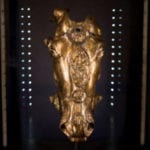 Politics
Politics  Politics
Politics  Weird Stuff
Weird Stuff 10 Eggs-traordinarily Odd Eggs
 History
History 10 Desperate Last Stands That Ended in Victory
 Animals
Animals Ten Times It Rained Animals (Yes, Animals)
 Mysteries
Mysteries 10 Devastating Missing Child Cases That Remain Unsolved
 Creepy
Creepy 10 Scary Tales from the Middle Ages That’ll Keep You up at Night
 Humans
Humans 10 One-of-a-kind People the World Said Goodbye to in July 2024
 Movies and TV
Movies and TV 10 Holiday Movies Released at Odd Times of the Year
 Politics
Politics 10 Countries Where Religion and Politics Are Inseparable
 Weird Stuff
Weird Stuff 10 Freaky Times When Famous Body Parts Were Stolen
 Politics
Politics The 10 Most Bizarre Presidential Elections in Human History
 Weird Stuff
Weird Stuff 10 Eggs-traordinarily Odd Eggs
 History
History 10 Desperate Last Stands That Ended in Victory
Who's Behind Listverse?

Jamie Frater
Head Editor
Jamie founded Listverse due to an insatiable desire to share fascinating, obscure, and bizarre facts. He has been a guest speaker on numerous national radio and television stations and is a five time published author.
More About Us Animals
Animals Ten Times It Rained Animals (Yes, Animals)
 Mysteries
Mysteries 10 Devastating Missing Child Cases That Remain Unsolved
 Creepy
Creepy 10 Scary Tales from the Middle Ages That’ll Keep You up at Night
 Humans
Humans 10 One-of-a-kind People the World Said Goodbye to in July 2024
 Movies and TV
Movies and TV 10 Holiday Movies Released at Odd Times of the Year
 Politics
Politics 10 Countries Where Religion and Politics Are Inseparable
 Weird Stuff
Weird Stuff 10 Freaky Times When Famous Body Parts Were Stolen
10 Surprising Facts About Marriage And Sex In Antiquity
We are all slaves to our customs, and our customs are slaves to our time and place. What we accept as normal today might have been seen as odd a few centuries ago. The customs surrounding marriage and sex are no exception. This list includes some of the most interesting—and sometimes shocking—facts linked to the institution of marriage, expressions of love, and sexual practices in ancient times.
10Performance Enhancers

Some Greeks were familiar with a number of concoctions intended to enhance sexual performance. Please, do not try any of the following recipes at home without first seeking medical advice. We take no responsibility for the outcome of testing in any of the following ancient recipes:
Smearing the penis with a mix of crushed pepper and honey was believed to cause a lasting erection.
An ancient Greek work prescribes, “Grind the ashes left after burning a deer’s tail, and then make a paste of the powder by adding wine.” If the penis and testicles are smeared with this mixture, the desire to mate will be enhanced.
An Indian plant (which we are unable to identify) was believed by the Greeks to cause powerful erections if it was rubbed against the penis. Though historically doubtful, there were testimonies of men who claimed, under the influence of this plant, they were able to achieve sexual climax up to 12 times, and some Indians said they managed 70 times.
Some of these concoctions were also used by farmers on animals being put to stud. In some cases, it was believed that pouring olive oil on the genitals would cancel the effect of these drugs.
9Male Prostitution
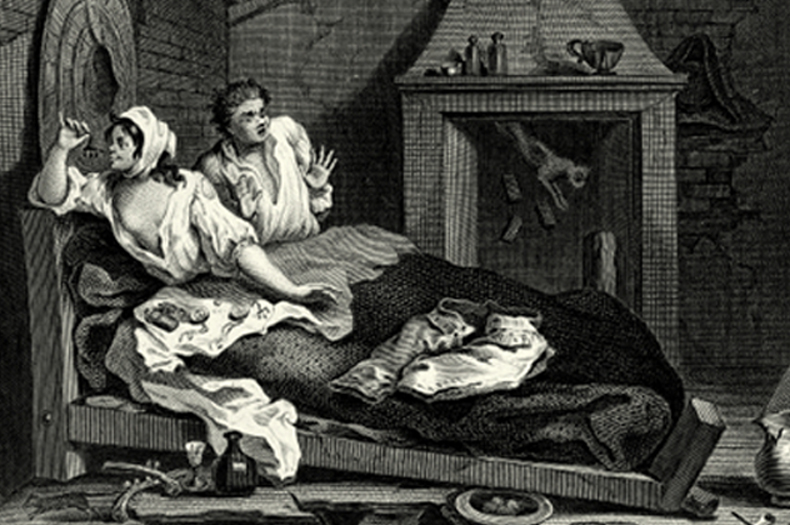
In Greek and Roman society, male prostitution was widely accepted. In the case of Athens, the earnings of both male and female prostitutes were subject to a city tax. This indicates that the activity was not only permitted, but also regulated by the state. In the case of male prostitutes, the majority of the clients were male.
Although male prostitution was a legal occupation, any man who performed sexual services in exchange for a fee had his civil rights removed: He could no longer serve a magistrate or speak in the assembly, and he was also banned from many other aspects of public life. As a result of all these restrictions, many Athenian male prostitutes were either slaves or foreign residents.
8Arranged Marriages
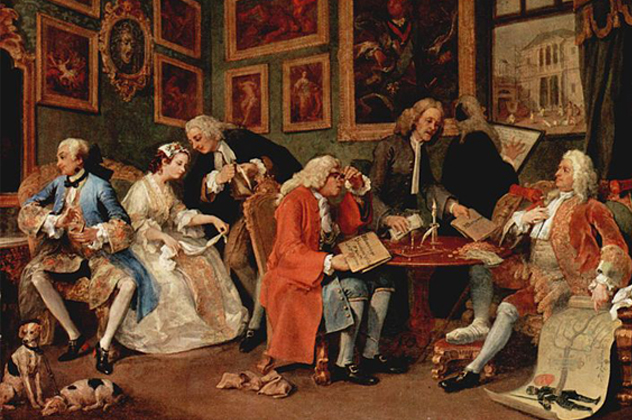
In ancient Mesopotamia, arranging a marriage was an acceptable practice. Marriage was conceived as a legal contract between two families, and in many cases the couple had never met before. Sumerians and Babylonians considered marriage to be a vehicle aimed to ensure procreation and an enforcer of the continuity and harmony of society. Although companionship and personal happiness could be part of the picture, these were not prime considerations. There were strict rules regulating the arrangement process. In Hammurabi’s code, it was stated that if the prospective father-in-law changed his mind after the marriage was agreed, then the suitor was entitled to an economic compensation.
Marriage arrangements were also practiced by the Romans. During their early history, the Romans allowed marriage arrangements even if the parties were not present. It was only later that a restriction was introduced stating that as long as the marriage was arranged with the knowledge of the absent parties, or they agreed to it subsequently, it was okay. The engagement could be arranged provided that both parties were seven years or older and that they understood the agreement.
7Marriage Markets
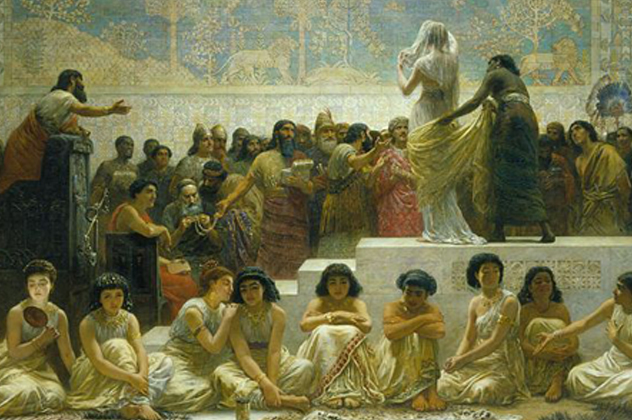
Imagine a market where young women are sold to men looking for a wife. Sounds a bit shocking, doesn’t it? The ancient Greek historian Herodotus reported the existence of such markets in his famous work Histories.
According to this report, once every year in each village of ancient Babylon, a bride auction used to take place. Many young women eligible for marriage were gathered in one place in front of a group of men seeking to marry. One by one, the women were sold to the highest bidder. The richest men bid against each other competing for the most beautiful of the young brides. As a result, the ugliest women were handed over to the commoners who, unable to bid for the beautiful ones, had no other choice but to accept whoever was left.
6Pro Male Bias
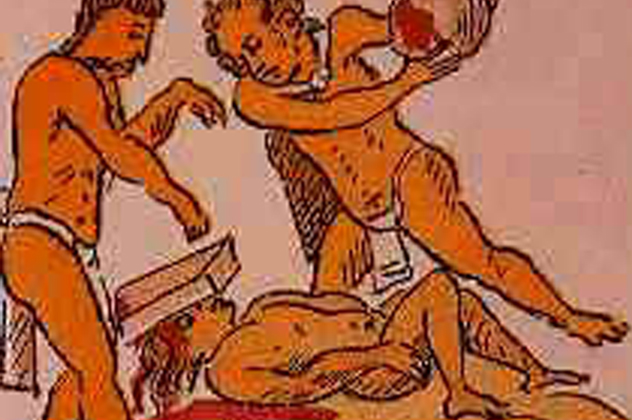
The rules that regulated marriage in ancient times tended to be a lot stricter for women in comparison to the rules that governed men. In ancient Israel, premarital virginity was only a requisite for women. There is not a single passage in the Hebrew Bible indicating that males were also expected to be virgins at marriage.
Likewise, if a man accused his wife of not being a virgin at the time of marriage, she faced the risk of being stoned if she was found guilty. If the charges were disproved, the man’s life was not at stake: He was merely flogged and forced to pay a fee.
5Priapus
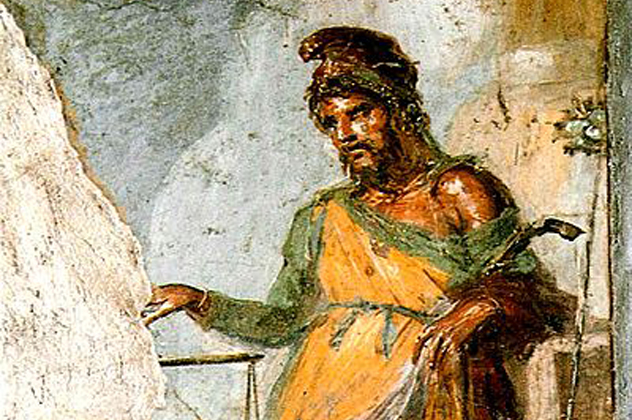
In some cities of ancient Rome, it was customary to place images and statues of the god Priapus, with an erect penis, in market gardens in order to discourage trespassers. It was believed that the god would inflict the intruders with severe sexual punishments. A number of poems honoring the god have survived to the modern day. One of them warns, “If a woman or a man or a boy commits a crime against me [Priapus], the woman would provide her cunt for me, the man his mouth, the boy his buttocks.”
The name of this god still endures today as a medical disorder called Priapism. In this uncommon disorder, the penis remains erect and unable to go back to its flaccid state, despite the absence of stimulation. .
4Adultery And Sexual Misconduct
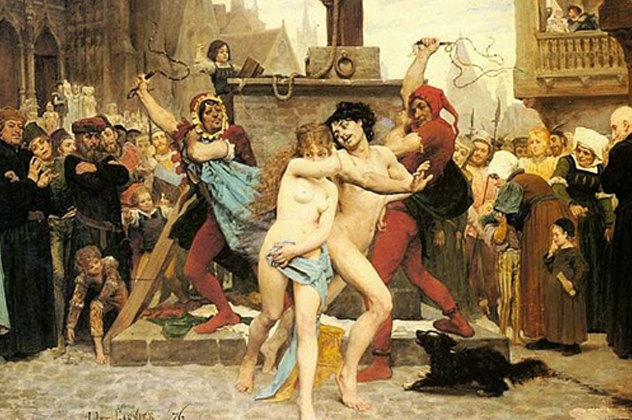
In Mesopotamia, according to Hammurabi’s code, adultery was considered a crime punishable by death. If a woman was caught cheating on her husband, she and her lover could either be thrown into the river or impaled. If the man decided to forgive his wife then he could keep her. In that case, her lover’s life had to be spared since both the unfaithful wife and her lover had to share the same fate.
In Rome in 18 BC, according to the Julian Law on adultery, a woman caught committing an infidelity could be killed, but it was the woman’s father (not her husband) who made the decision. Again, the fate of the woman and her lover had to be the same.
For the Athenians, adultery was a serious offense that was considered an act of outrage toward the community as a whole. A law issued in 621 BC allowed the execution of the adulterer, but this type of penalty became less severe toward the 5th century BC. Killing the adulterer was no longer a common occurrence, while fines and public humiliation were a more likely consequence.
3Polygamy In Ancient Israel
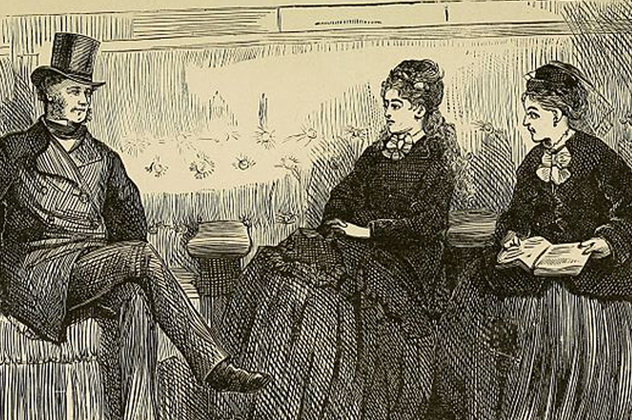
The institution of marriage has many accepted configurations in the Hebrew Bible. During Israel’s earliest historical period, polygamy was an accepted practice. Though with the economic burden of supporting more than one wife, it wasn’t the most widespread practice outside the upper class. We know that David and Solomon were big fans of polygamy.
In 1 Kings 11:3, the Bible records about a thousand women for Solomon, including wives and concubines. David was a bit more austere; he had at least eight. There are also some earlier examples recorded. In Genesis 29:20-29, Jacob committed to a 14-year indenture for his two concubines and two wives.
2Babylonian Sacred Prostitution
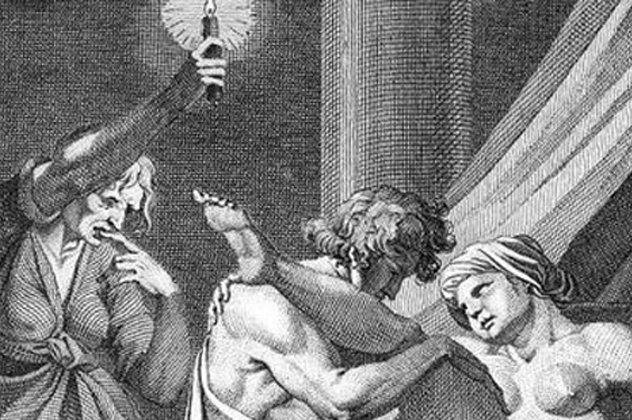
It was an ancient Babylonian custom that at least once in her life, all women of that nation had to perform a sacred sexual duty to the goddess Mylitta, who is mostly identified with Aphrodite. Women had to enter the sacred precinct of the goddess and have intercourse with a stranger in return for a fee.
This account is also reported by the ancient Greek historian Herodotus in Histories 1.199. He adds that the women “are continually entering and leaving this place. Whenever a woman comes here and sits down, she may not return home until one of the strangers has tossed silver into her lap and has had intercourse with her outside the sanctuary.” The earnings were dedicated to the goddess Mylitta, and when the silver was received by the women, it became sacred property.
Women that were not attractive enough, Herodotus adds, may have had to wait a long time, maybe even years, while those who were tall and beautiful were done with their duty fairly quickly.
1Widows In India
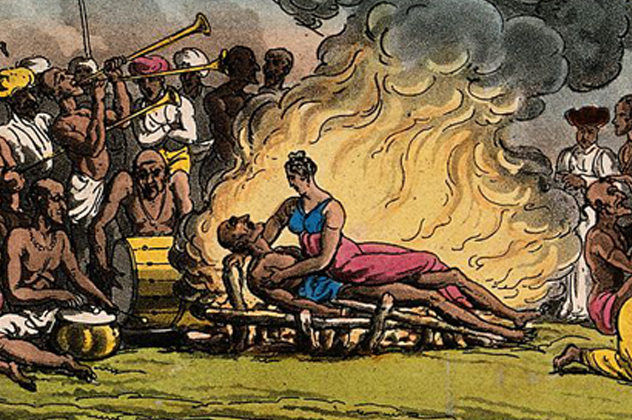
In ancient India, some communities believed that widows were not entitled to move on with their lives after their husband passed away. They had a peculiar procedure called sati or suttee. Its simplicity was only equaled by its brutality: The widow jumped into the pyre of her dead husband (or was pushed, depending on the circumstances) and was burned alive.
In a different version of the same custom, the widow was buried alive (many times willingly) next to the corpse of her husband.
William Ward, an English Baptist missionary who visited India during the 19th century, witnessed a 16-year-old Indian widow agree to be buried next to her husband’s cadaver. A few British officers, who were also present, tried to persuade the young window’s relatives (including her mother) to stop, but none of them showed any interest in doing so. The young girl was still alive when she was completely buried. After this, her relatives left the scene without showing any concern for what had taken place.
Cristian Violatti is a freelance writer and one of the editors of Ancient History Encyclopedia. He is currently studying archaeology at the University of Leicester, England. Cristian has a broad spectrum of interests, including ancient scripts and languages, archaeological and anthropological theories of ethnicity and its markers, Asian culture, military history, world mythology, philosophy, and prehistory, among other topics.
Cristian has been consistently publishing articles both in digital and printed media. Some of his work is available at Ancient History Encyclopedia.


